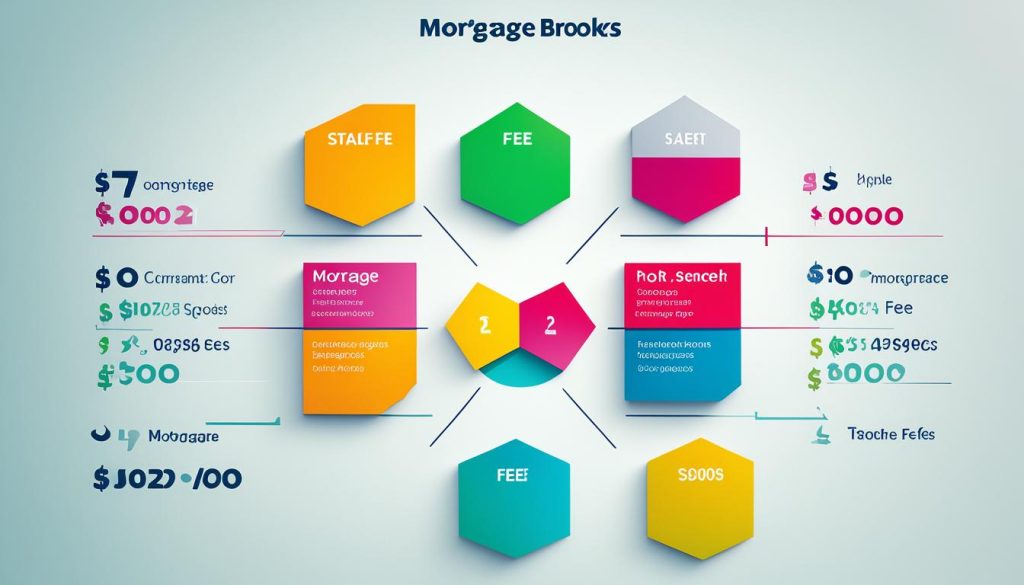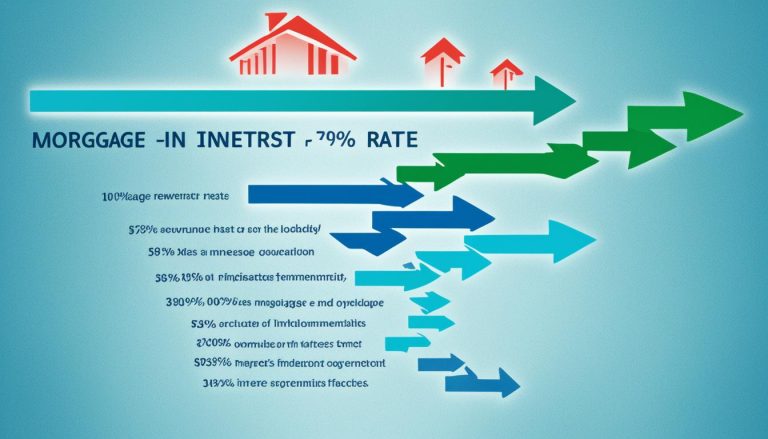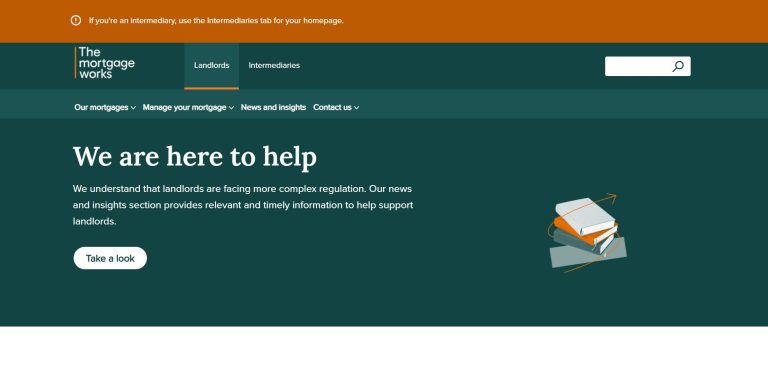Welcome to our guide on thow much does a mortgage broker cost for services in the UK. If you’re in the market for a new home or looking to refinance, a mortgage broker can help you navigate the complex world of mortgages and find the best options for your unique financial situation.
But before you commit to a mortgage broker, it’s important to understand the cost involved. In this article, we will explore the various pricing structures and fees associated with mortgage broker services, giving you the information you need to make an informed decision. Let’s dive in!
Understanding Mortgage Brokers
Before diving into the cost, let’s first understand what a mortgage broker does. A mortgage broker is a professional who acts as an intermediary between you and lenders. They help you find the most suitable mortgage options based on your financial situation and needs.
Instead of approaching banks individually, a mortgage broker provides access to a wide range of mortgage products and lenders. They have in-depth knowledge of the market and can navigate complex financial processes on your behalf.
Mortgage brokers work closely with you to assess your financial goals and evaluate your borrowing capacity. They gather relevant documentation, such as income statements and credit reports, to present a comprehensive picture to lenders.
By leveraging their extensive network of lenders, mortgage brokers present multiple mortgage options tailored to your specific circumstances. They act as your advocate throughout the mortgage application process, helping you understand the terms and conditions, explaining complex jargon, and ensuring you make informed decisions.
Additionally, mortgage brokers offer valuable advice on mortgage interest rates, repayment options, and mortgage terms, taking into account your short-term and long-term financial goals.
Overall, mortgage brokers simplify the mortgage process, saving you time and effort. They provide personalized guidance and support, ensuring you secure the best mortgage deal based on your unique needs.
The Benefits of Using a Mortgage Broker
Partnering with a mortgage broker offers several advantages:
- Access to a Wide Range of Lenders: Unlike banks, mortgage brokers have relationships with multiple lenders, giving you access to a diverse range of mortgage products and rates.
- Expert Guidance and Support: Mortgage brokers have extensive knowledge and experience in the mortgage industry. They can provide expert advice tailored to your specific financial situation.
- Time and Effort Savings: Instead of researching and contacting multiple lenders, mortgage brokers do the legwork on your behalf. They handle the paperwork and negotiate with lenders, saving you time and effort.
- Potential Cost Savings: Mortgage brokers have access to exclusive deals and rates that may not be available to the general public. By securing a competitive mortgage rate, you could potentially save money over the life of the loan.
- Personalized Service: Mortgage brokers work closely with you, taking into account your financial goals and circumstances. They provide tailored solutions to meet your unique needs.
Now that we understand the role of a mortgage broker, let’s explore the different types of fees they may charge in the next section.
Types of Mortgage Broker Fees
Mortgage brokers play a vital role in helping individuals find the best mortgage options for their specific needs. However, it’s important to understand the types of fees that mortgage brokers may charge for their services. By knowing the different fee structures, you can make an informed decision about the cost of using a mortgage broker.
Common Types of Mortgage Broker Fees
Here are some typical mortgage broker fees you may encounter:
| Fee Type | Description |
|---|---|
| Mortgage Application Fee | A fee charged by the broker to process your mortgage application. |
| Broker Commission | A percentage of the loan amount that the broker charges as their commission. |
| Administration Fee | An additional charge for administrative tasks performed by the broker. |
| Valuation Fee | A fee for assessing the value of the property you wish to purchase. |
It’s important to note that not all mortgage brokers charge the same fees or use the exact fee names listed above. The fee structure can vary depending on the broker and the specific services offered. Always ask for a breakdown of the fees before entering into an agreement with a mortgage broker.
Understanding the different types of mortgage broker fees will help you assess the cost of using their services and compare quotes effectively. When evaluating potential brokers, consider not only the fees but also their experience, expertise, and customer reviews to ensure you’re making a well-informed decision.
Percentage-Based Commission
When it comes to the cost of using a mortgage broker, one common pricing structure is a percentage-based commission. In this model, mortgage brokers charge a percentage of the loan amount as their fee. Typically, this fee ranges from 1% to 2% of the loan value.
With a percentage-based commission, the fee increases as the loan amount increases. This pricing structure allows mortgage brokers to align their compensation with the size of the loan they are assisting you with.
There are a few important points to consider when evaluating the costs associated with a percentage-based commission:
- Loan Value: As the loan amount increases, so does the broker’s fee. Keep in mind that this can potentially result in higher costs if you have a large mortgage.
- Transparency: Since the fee is calculated based on a percentage, it’s typically easier to understand and compare across different mortgage brokers.
- Value for Money: Assess whether the services provided by the mortgage broker justify the percentage fee charged. Consider factors such as their expertise, access to a wide range of lenders, and ability to secure favorable mortgage terms.
Understanding the percentage-based commission pricing model can help you make an informed decision when choosing a mortgage broker. However, it’s crucial to compare pricing structures and consider other fees and costs associated with using a mortgage broker to ensure that you find the most affordable option that meets your needs.
Flat Fee
Another pricing structure that mortgage brokers may adopt is the flat fee. With this fee structure, brokers charge a fixed amount for their services, irrespective of the loan amount. The flat fee can be advantageous for borrowers who have a large loan amount or need complex financial guidance. Additionally, it provides transparency to borrowers as they know exactly how much they will be charged for the broker’s services.
However, there are a few things to consider when opting for a flat fee structure. Borrowers with smaller loan amounts may find the flat fee to be relatively higher in percentage terms compared to the loan value. Moreover, individuals with straightforward financial situations might not require extensive advice or assistance from the broker, making a flat fee less cost-effective for them.

Hourly Rate
Certain mortgage brokers may charge an hourly rate for their services. While this pricing model is less common, it’s important to understand how it works and what to expect if you come across a mortgage broker who charges an hourly rate.
When a broker charges an hourly rate, you will pay them for the time they spend working on your mortgage application or providing financial advice. The total cost will depend on the number of hours they dedicate to your case.
While hourly rates can provide transparency in terms of payment, they may not be suitable for every borrower. Depending on the complexity of your mortgage needs, the total cost of using a broker who charges an hourly rate can vary significantly.
Pros and Cons of Hourly Rate
There are both advantages and disadvantages to consider when it comes to mortgage brokers charging an hourly rate:
- Pros:
- Transparency: With an hourly rate, you have a clear understanding of how much you are paying for the broker’s time and expertise.
- Fairness: An hourly rate means you only pay for the specific services you receive, potentially making it a fairer pricing structure.
- Cons:
- Uncertain Costs: Since the total cost depends on the number of hours spent, it can be difficult to predict the final amount you will pay.
- Higher Expenses: If your mortgage application or financial situation is complex, the hourly rate could result in higher overall costs compared to other pricing models.
It’s essential to consider your financial circumstances and the complexity of your mortgage requirements when deciding whether an hourly rate is the right pricing structure for you.
Remember, every mortgage broker is different, and while some may charge an hourly rate, others may offer alternative fee structures such as a percentage-based commission or a flat fee. Make sure to explore all your options and choose a pricing model that aligns with your needs and budget.
Additional Costs to Consider
While the fees charged by mortgage brokers are an essential consideration, there are other costs involved in using their services. It’s important to be aware of these additional expenses to have a clear understanding of the total cost of employing a mortgage broker.
Here are some of the common additional costs you may encounter:
- Administrative Fees: Some mortgage brokers may charge administrative fees to cover the paperwork and processing involved in securing a mortgage. These fees can vary, so it’s important to ask upfront about any administrative costs.
- Application Fees: Mortgage lenders may charge an application fee when you submit a mortgage application. As a mortgage broker acts as an intermediary, there may be additional application fees involved in the process.
- Valuation Fees: When applying for a mortgage, the lender may require a property valuation to assess its market value. This valuation is typically carried out by a surveyor and comes with its own costs.
- Legal Fees: Engaging a solicitor or conveyancer is necessary when buying a property. These legal professionals handle the legal aspects of the purchase, including property searches and the drafting of contracts. While these fees are not directly related to the mortgage broker, they are still a part of the overall cost of the home buying process.
- Brokerage Fees: In some cases, mortgage brokers may charge additional brokerage fees for certain specialized services. These fees should be transparently communicated to you by the broker.
It’s crucial to factor in these additional costs when budgeting for your mortgage. While they may seem like extra expenses, they are often necessary for a smooth and successful property purchase.
To give you a better idea of how these costs can vary, here’s a table outlining the average additional expenses associated with mortgage broker services:
| Additional Costs | Average Range |
|---|---|
| Administrative Fees | £100 – £500 |
| Application Fees | £0 – £300 |
| Valuation Fees | £200 – £800 |
| Legal Fees | £500 – £1,500 |
| Brokerage Fees | Varies based on the service |
Keep in mind that these figures are approximate and can vary depending on factors such as the complexity of the mortgage application and the location of the property. It’s always advisable to discuss and clarify any additional costs with your mortgage broker before proceeding.
Factors Influencing Broker Cost
The cost of hiring a mortgage broker can vary based on several factors. Understanding these factors will help you budget accordingly and make an informed decision. Here are some key considerations:
1. Loan Amount
The loan amount plays a significant role in determining the cost of hiring a mortgage broker. In general, the higher the loan amount, the higher the broker’s fee may be. Mortgage brokers may charge a percentage of the loan amount as their fee, so it’s essential to consider this when budgeting for your home purchase.
2. Complexity of the Mortgage
The complexity of your mortgage application can also impact the cost of hiring a broker. If your financial situation is more complex or if you require a specialized mortgage product, the broker may need to put in more time and effort to find suitable options. This increased complexity may result in higher fees.
3. Broker’s Experience and Expertise
The experience and expertise of the mortgage broker can also influence their cost. Brokers with extensive experience and a proven track record may command higher fees due to their industry reputation and the value they bring to the table. However, it’s important to consider the value they can provide and weigh it against the cost.
4. Geographical Location
The location of the property and the mortgage broker’s operation can also impact the cost. Areas with higher demand or higher living costs may have mortgage brokers who charge higher fees to cover their expenses. Consider the specific location when budgeting for broker costs.
5. Market Conditions
Market conditions can also influence the average cost of hiring a mortgage broker. During periods of high demand or when interest rates are particularly competitive, brokers may charge higher fees due to increased demand for their services. It’s important to be aware of market conditions and any potential cost fluctuations.
By considering these factors and conducting thorough research, you can get a better idea of the average mortgage broker cost and make an informed decision that aligns with your budget and requirements.
| Factors | Influence on Cost |
|---|---|
| Loan Amount | Higher loan amount may result in a higher broker fee |
| Complexity of the Mortgage | More complex mortgages may result in higher fees |
| Broker’s Experience and Expertise | Experienced brokers may command higher fees |
| Geographical Location | Higher living costs may contribute to higher broker fees |
| Market Conditions | Market demand and competitiveness can impact broker fees |
Negotiating Broker Fees
When it comes to the cost of mortgage broker services, negotiation is possible! In this section, we will provide you with tips and strategies that empower you to seek a fair and competitive rate from your chosen mortgage broker, helping you save money in the process.
Tip 1: Research and Compare: Before approaching a mortgage broker, gather quotes from multiple brokers. This will give you a better understanding of the average mortgage broker cost and enable you to compare the fees charged by different professionals.
Tip 2: Highlight Your Financial Strength: Emphasize your financial stability and demonstrate that you are a reliable borrower. This can include showcasing a strong credit score, a stable income, and a healthy financial history. Mortgage brokers may be more open to negotiating if they believe you are a low-risk client.
Strategies for Negotiating Broker Fees
- Strategy 1: Request a Lower Percentage-Based Commission:For brokers who charge a percentage-based fee, explore the possibility of negotiating a lower percentage. You can present market research that indicates the average percentage charged by other brokers, emphasizing the need for a more competitive rate.
- Strategy 2: Propose a Flat Fee:If a broker initially presents a percentage-based fee, consider proposing a flat fee as an alternative. This can be a fixed amount that you believe is fair and reasonable based on your discussions and research. Be prepared to justify your proposal with supporting information.
- Strategy 3: Bundle Additional Services:Mortgage brokers may offer additional services, such as financial planning or insurance advice. If you are interested in these services, you can negotiate the broker fee by bundling them together. This can result in a more favorable overall fee structure.
- Strategy 4: Seek Transparency:During negotiations, ask for a breakdown of the broker’s fees and charges. This will help you understand the value you are receiving and identify any areas where costs can be reduced or eliminated.
Remember, negotiation is a two-way process, and open communication is key. Be respectful, professional, and prepared to compromise. By following these strategies and tips, you can increase your chances of securing a favorable mortgage broker cost that aligns with your budget and needs.
Researching and Comparing Broker Costs
When it comes to hiring a mortgage broker, researching and comparing costs is crucial to ensure you get the best value for your money. By gathering and comparing quotes from different brokers, you can find the one that offers competitive pricing while meeting your specific requirements. Here are some steps to guide you through the process:
1. Identify Your Needs
Before you start researching and comparing broker costs, it’s important to identify your needs and priorities. Consider factors such as the type of mortgage you need, the loan amount, and any specific services or expertise you require from a mortgage broker. This will help you narrow down your options and focus on brokers who can meet your requirements.
2. Research Multiple Brokers
Begin your research by identifying multiple mortgage brokers operating in your area. Look for brokers who have a good reputation, positive reviews, and a track record of successful mortgage applications. You can also ask for recommendations from friends, family, or real estate agents who have used mortgage brokers in the past.
3. Request Quotes
Contact the mortgage brokers on your list and request quotes for their services. Provide them with the necessary information about your mortgage needs, and ask for a breakdown of their costs. Be sure to inquire about any additional fees or charges that may apply.
4. Consider Experience and Expertise
While costs are an essential factor, it’s also important to consider the experience and expertise of the mortgage brokers you are comparing. Look for brokers who have extensive knowledge of the mortgage market and a proven track record of helping clients secure suitable loans. A broker’s expertise can often outweigh a slightly higher cost when it comes to navigating complex mortgage situations.
5. Read Client Reviews
Reading client reviews and testimonials can provide valuable insights into the experiences of others who have worked with the mortgage brokers you are considering. Look for brokers with positive reviews and satisfied clients, as this is a good indicator of their professionalism and ability to deliver results.
6. Schedule Consultations
If possible, schedule consultations with the mortgage brokers you are seriously considering. This will give you the opportunity to ask any questions you may have and get a better sense of their communication style and overall suitability for your needs. A face-to-face meeting can provide valuable context beyond just the numbers.
7. Make an Informed Decision
After completing your research, comparing costs, and considering all relevant factors, you’ll be ready to make an informed decision. Choose the mortgage broker that not only offers competitive pricing but also aligns with your needs, has a good reputation, and provides the level of service and support you require.
By investing time in researching and comparing broker costs, you can find a mortgage broker who offers value for money and helps you navigate the mortgage process with confidence.
Conclusion
In conclusion, the cost of hiring a mortgage broker in the UK can vary depending on several factors, including the pricing structure and additional fees. When considering how much does a mortgage broker cost, it’s important to understand the different pricing models available.
Whether you opt for a percentage-based commission, a flat fee, or an hourly rate, each pricing structure has its pros and cons. It’s crucial to weigh the costs against the value and convenience they provide in helping you navigate the complex mortgage landscape.
Additionally, when calculating the mortgage broker cost, don’t forget to consider the potential additional costs that may arise during the process. These can include administrative fees, application fees, and other charges that may vary between different brokers.
Lastly, it’s worth noting that you have the power to negotiate broker fees. Don’t be afraid to discuss your budget and explore the possibility of finding a mortgage broker who can provide the services you need at a price that aligns with your financial goals.
FAQ
What does a mortgage broker do?
A mortgage broker acts as a middleman between you and lenders. They help you find suitable mortgage options based on your financial situation and needs, saving you time and effort. They can also negotiate on your behalf, guide you through the application process, and provide expert advice throughout the mortgage process.
What are the common types of mortgage broker fees?
Mortgage brokers can charge different types of fees, including a percentage-based commission, flat fee, or hourly rate. These fees cover the broker’s services, such as researching and comparing mortgage options, application assistance, and financial advice. It’s essential to understand the fee structure before engaging a broker.
Do mortgage brokers charge an hourly rate?
While less common, some mortgage brokers may charge an hourly rate for their services. If a broker charges an hourly rate, they will typically provide an estimate of how long the process is likely to take and an approximate cost based on their hourly rate. It’s important to discuss the rate and expectations upfront to avoid any surprises.
Are there any additional costs when using a mortgage broker?
Besides the broker’s fees, there may be additional costs associated with using a mortgage broker. These costs can include administrative fees, application fees, valuation fees, and legal fees. It’s crucial to discuss these potential expenses with your broker to have a comprehensive understanding of the total costs involved.
Can I negotiate the fees with a mortgage broker?
It is possible to negotiate the fees with a mortgage broker. Some brokers may be open to reducing their fees or offering a more competitive rate, especially if you have multiple quotes to compare. It’s important to have open and honest communication with the broker and be prepared to negotiate based on the services they provide.






